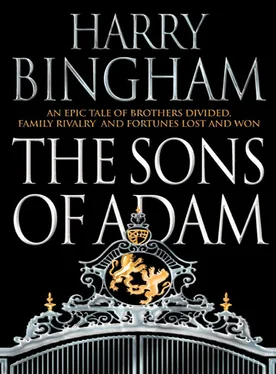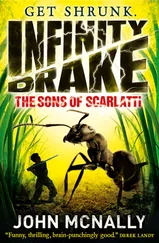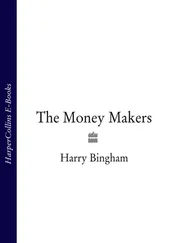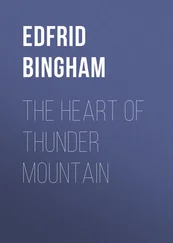‘Take care, brother,’ he said. ‘You play a dangerous game at times.’
Tom smiled brilliantly and gave an airy wave. ‘That’s what comes of being a gardener’s son. Nothing to lose.’
He was wrong, of course. And it wouldn’t be long before he knew it.
It was nine months later, 10 August 1916.
Alan and Tom were both alive, both intact. That was the good news.
Meanwhile, the war was continuing. The Battle of the Somme was in progress. In the last six weeks alone, a hundred thousand British soldiers had been killed or wounded. So far, Tom and Alan’s battalion had been kept out of the conflict, but that happy interval was about to end. The battalion was due to attack the very next day. The fighting would be as severe as anything the two men had ever experienced. Casualties were certain to be high. Perhaps colossal.
That was the bad news.
And, in a way, it was untrue to say that both men had survived intact. They hadn’t. They couldn’t. No man survives, life in the combat zone for very long. Nerves shred. Humanity frays. The spirit fails.
Of the two men, Alan had been worse affected. Devoted to his men, he often pushed himself too hard. Too serious to unwind easily, he found relaxation difficult. He smoked. He rode. He wrote letters home.
And he’d found a girl.
Called Lisette, she was pretty, dark-haired, smiling and kind. They’d met by accident one day in a village seven miles behind the lines, Ste Thérèse-sur-Tarne (‘Saint Tess’ to the men). He was billeted there. She was the daughter of one of the local farmers. Caught outside during a rainstorm, he helped her home. They ran into her farmhouse, shared some coffee, laughed together. She invited him back. And back. After three visits, he could take a hint. Excited and embarrassed in about equal measure, he undressed in her little bedroom. They made love. During the rest of the fortnight that Alan was in Saint Tess, they met on a further nine occasions, making love on eight of them.
The evening before the assault found the battalion sheltering in the wreck of what had once been a village. The officers’ mess was a ruined cellar, whose entrance was neatly flanked by two rows of shell cases, graduated in size, ranging up to the height of a man.
Tom was still Tom. He was handsome, brilliant, unmilitary, courageous. But over time, his outlook had blackened. He lounged against the cellar wall, barely protected by the sandbag parapet in front of him. He picked up a flint and threw it out beyond the sandbags.
‘A fine place to die,’ he commented.
‘For God’s sake!’
Alan jumped to find a piece of wood to ward off Tom’s unlucky words. A discarded crate lay nearby and Alan passed a chunk of it to Tom, who touched it absently. The side of the crate was marked in English: ‘Shell Motor Spirit’. Tom nodded at the marking and smiled.
‘Good choice.’
‘Let’s get out there right away, shall we?’ said Alan. ‘After the war, I mean. Not wait any longer.’ He meant get out to Persia, of course.
Tom laughed and shook his head.
‘What?’ said Alan defensively. ‘You can’t want to go back to Standard, can you? Lord knows, I couldn’t stand to be cooped up in somebody else’s office.’
Tom laughed again, kindly this time. ‘That’s not what I meant, old man. I meant … Look, you don’t think we’ll both survive this, do you?’ Tom spoke quietly, talking almost to himself. ‘But there are worse things, after all.’
‘Tom, for God’s sake!’
‘If I’m to die, I’ve decided to fight like a maniac first. Take a few Boche with me.’
‘Don’t speak like that. Don’t even think like that.’
Tom shrugged. ‘I haven’t always thought like that. This whole damned war is so stupid, I couldn’t see much purpose in trying to fight it hard. I still can’t, in a way, except that one has one’s self-respect to think of.’ He flicked his white and purple medal ribbon thoughtfully, then his tone changed again. ‘If I am killed, will you promise to do what you can in Persia?’
‘Of course.’
‘Drill. If there’s oil, you’ll find it. If there isn’t – well, at least you’ll have tried.’
‘We’ll find it together.’
‘You’re probably right. Dead or alive, I’ll be there in spirit. But promise me, brother. Your most sacred promise.’
‘I promise.’
‘And don’t give the damn thing away to a bunch of stupid stockmarket investors. I mean, you’ll have to at some point. But not straight away. Find the oil first.’
‘The oil first, if humanly possible.’
Tom gravely nodded his acceptance. ‘Good. Good man.’
The way he said it, it sounded like goodbye.
The battalion moved off at eight that evening. Its goal: a full-frontal attack on enemy positions.
It was pitch-black and raining, and the ground was evil. Three times, artillery fire forced the company to flatten itself into whatever cover was available. Each time the shelling lifted, the company moved forwards again, leaving a small handful of wounded men behind. On one occasion, Alan was struck with a shell splinter, shaped like a goose quill, in his shoulder blade. An NCO lying in the ditch next to him tweaked it out with finger and thumb and threw it away. Neither man commented on the incident, or was even thinking about it five minutes later.
They reached their designated position shortly after midnight. The men ate rations from their packs and were given permission to rest until four.
The rain settled in and grew heavier. Time moved with agonising slowness.
At four o’clock, a thunder of British artillery opened up behind them, and they could hear the torrent of shells crashing down on German positions. The men listened in silence: half pleased at the thought of what the shells were doing to the enemy, half terrified because of what this implied for the coming offensive. Alan stayed with his men. Although Tom was close by, he might as well have been on another planet for all Alan knew of him.
Four thirty approached. The rain was beginning to fall more gently and a meagre grey light began testing its options on the eastern horizon. Alan’s eyes struggled to follow the luminous figures on his watch. The second hand swept remorselessly round. And finally, it was four thirty precisely. Alan raised his hand and dropped it: the signal to advance.
His men moved off. For several seconds, there was silence – beautiful silence. Then, almost simultaneously, three flares rose from the German-held salient. The flares disclosed what the German defenders already suspected. There was a trickle of rifle fire, then a din of machine guns, then the extraordinary violence of concentrated shelling. Air became metal. The noise was so indescribably loud that the sense of hearing fell away until it was almost like walking into silence.
Alan saw the men next to him hold their positions, just as they’d been drilled. No clustering together, no turning human lives into simple targets for German gunners. But the men walked as though into a gale. Bent over. Doubled up.
As he watched his men, he saw one of them struck full in the chest and sink to his knees with a soft ‘Ah!’ of release. Another man bent down, apparently to fiddle with his bootlaces, but he bent too far and slid to earth with dark red tongues of blood where his face should have been. All around, men were falling when they should be walking. Alan watched in mounting amazement and shock. His platoon was being destroyed, his beloved men massacred, soldierlike and courageous to the end.
Still they advanced.

Alan had no real recollection of the next few hours. Only by midday did the true situation unfold. The attack had largely failed. The attackers had bitten off a chunk of German line at huge cost. The two opposing artilleries screamed at each other. In the chaos of collapsed and broken trenches, both sides attempted to reconfigure their defences.
Читать дальше













